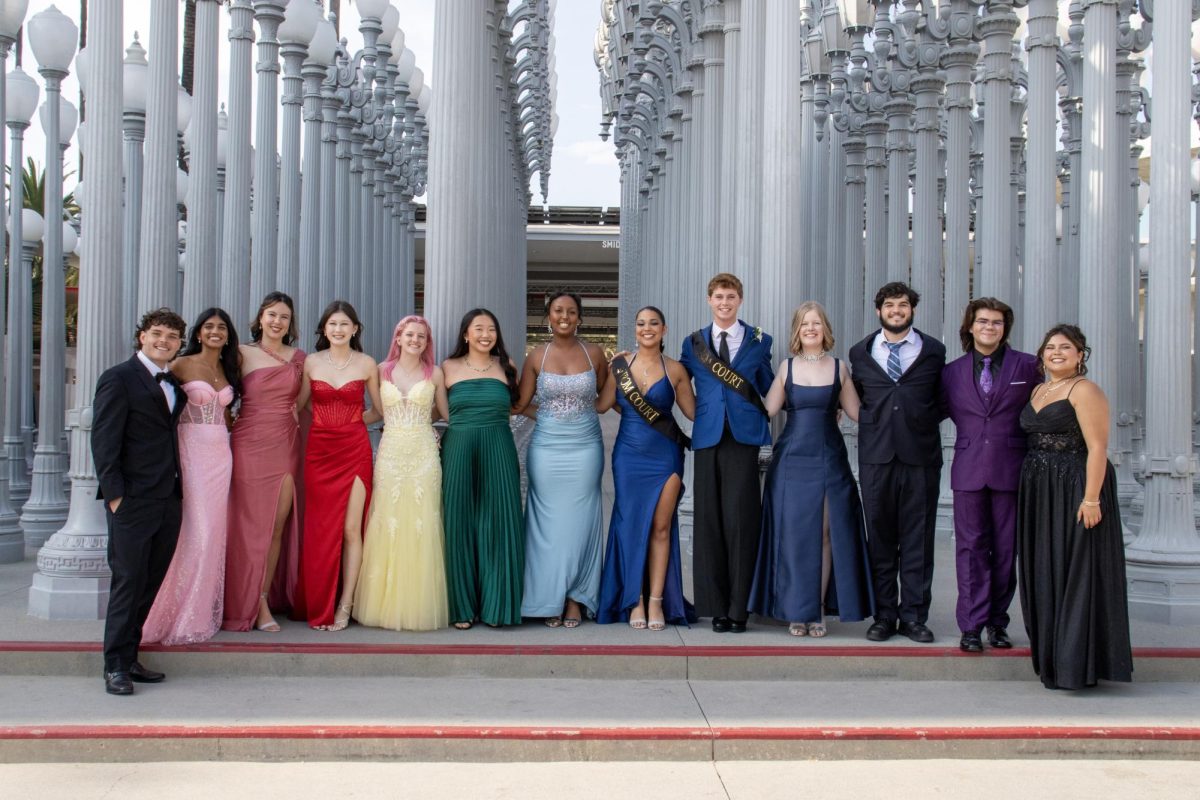Three Decades Later
October 16, 2017
On October 6, Denis Villeneuve’s Blade Runner 2049 hit theaters. I have been a fan of Villeneuve’s ever since I saw Prisoners back in 2016.
When I discovered he was directing Blade Runner 2049, two thoughts automatically came to mind: I should probably watch the original Blade Runner, and I cannot wait for this sequel—so on the afternoon of October 6, my dad and I drove over to Arclight Cinemas and watched the sci-fi cinematic masterpiece.
Blade Runner, directed by Ridley Scott, was released on June 25, 1982. Set in 2019, the film centers around retired cop Rick Deckard (Harrison Ford) who is sent back to the workforce with a crucial task at hand: find and destroy Nexus 8 replicants, forms of robots that are a severe threat to society. His task to hunt down these replicants makes him known as a Blade Runner.
Regardless of the fact the movie’s production took place in the early 80s, the quality of the graphics and acting is impressive. The futuristic setting is grim with hardly any daylight and constant pouring rain. The skyscraper advertisements also accurately depict the present world we live in, revolving around capitalism and money.
In this new rendition of the film—based three decades later in the year 2049—Ryan Gosling stars as Detective K: a Nexus 9 replicant who discovers a secret from Deckard’s past. Niander Wallace, portrayed by Jared Leto, is the ruthless creator of Nexus 9s, and soon enough he too uncovers Deckard’s secret. The rest of the film involves Deckard and Det. K’s pursuit in keeping the secret safe, as well as escaping Wallace’s wrath.
When it comes to his acting, Gosling gives a stunning performance. Utilizing minimalism, he portrays most of his feelings through his facial expressions. In addition, Ana de Armas, who plays Det. K’s programmed girlfriend in the film also gives a strong performance.
Armas’ character, Joi, is a programmed girlfriend sold in stores. Whoever purchases her can customize her to do whatever that customer wants. However, in the movie, we only see Joi as Det. K’s lover; we do not see her in any other household.
Even though she plays a robot—who is supposed to completely lack emotion —Armas portrays her character’s feelings in an amazing way. Because she is not a real woman, she cannot be there for Det. K the way she wants to, thus making the pain and love she feels all the more powerful.
In addition, the cinematography, done by Roger Deakins (Sicario, The Shawshank Redemption), paves the way to beautiful, ethereal scenes.
Every time I watch a movie, the camerawork is definitely something I take into consideration. When it comes to Blade Runner 2049, Deakins captures it all in a way that is so visually pleasing it adds more depth to the film—whether it be the yellow aesthetics of Deckard’s apartment or the simplicity and bleakness of the endless rain in the city.
While the scenes are captivating on their own, the music contributed to the overall tone of the film. Hans Zimmer composed most of the soundtrack, and with high-strung songs like “Hijack” and “Flight to LAPD,” a nerve-racking tone is created.
Apart from the acting, cinematography, and music, there might be a hidden message within the Blade Runner franchise. Of course, this is an unconfirmed theory—and it could be completely wrong—but the world within Blade Runner 2049 could possibly be a distorted version of our world.
In the original film, Deckard went after Nexus 8 replicants because they were different from the rest of society. Of course, they were violent and a nuisance, but aside from that they were still different. They were not humans and therefore were not accepted.
In this new film, the Nexus 9 replicants—a non-violent, “obedient” and advanced form of Nexus 8s—are treated as slaves and disregarded in society. Every time Det. K steps into the LAPD, he is tested to see if he is still obedient. If he does not pass the test, he is immediately subject to death.
The Nexus 9s of Blade Runner 2049 are oppressed. They are not accepted and any wrong move they make could be their last. Could the writers be sending an underlying message?
The world these days is divided, especially in our country. We, as a society, dislike what is different from us. We try and shame whoever looks, acts, or feels differently, and these feelings are the roots of intolerance.
Again, this theory is not solidified or set in stone. It is just something my dad and I discussed as we left the theater that day.
Theory or not, the film was phenomenal. Blade Runner will always be a classic, but Blade Runner 2049 is a perfect sequel to its predecessor. Catch it at your local theater.




